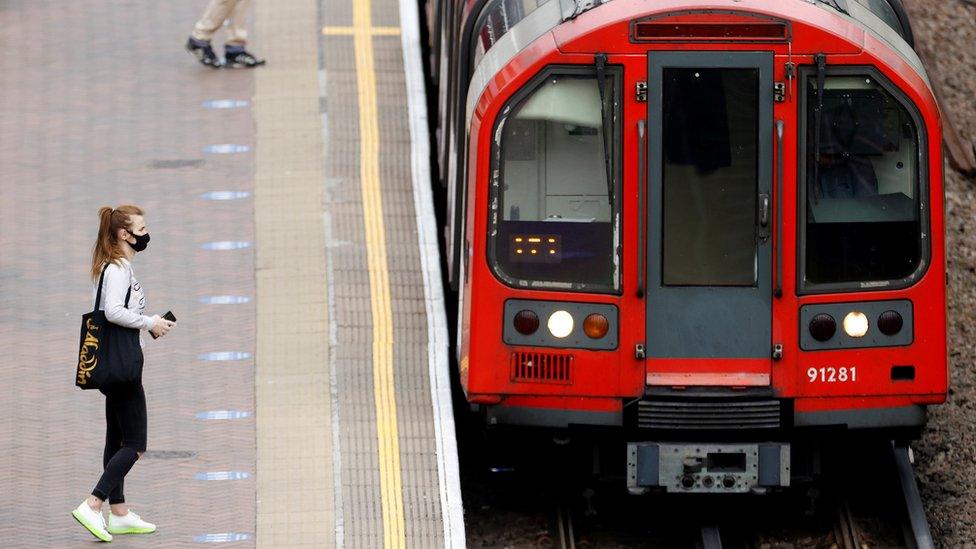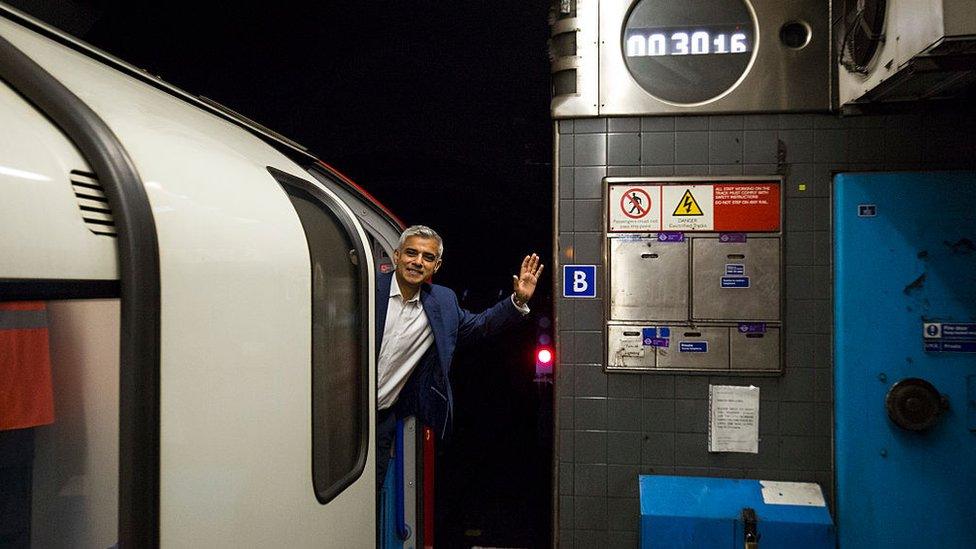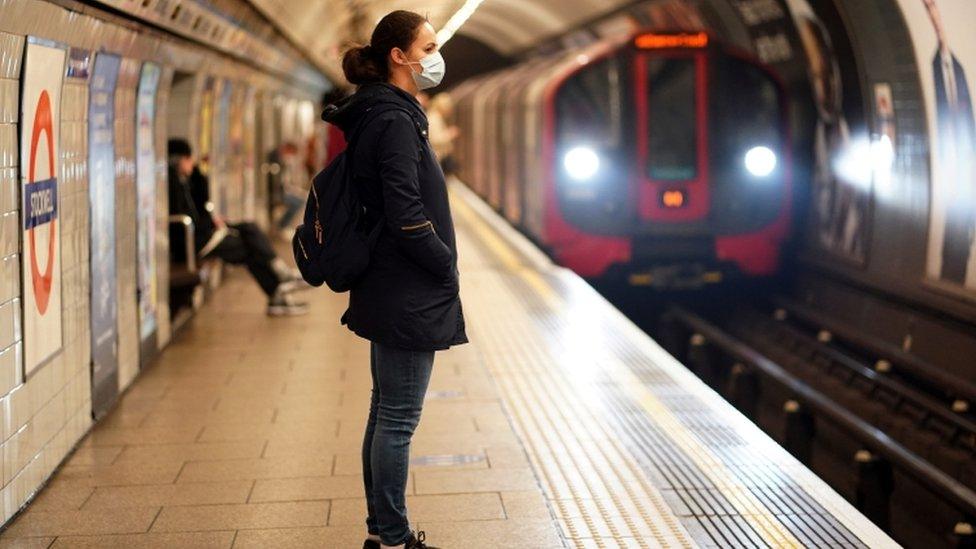Covid-19: London public transport bailout extended as deal considered
- Published

The government has paid more than £4bn in bailouts to keep TfL services running during the coronavirus pandemic
Funding to keep the public transport system running in London has been extended until Friday.
The government has agreed to continue the bailout for Transport for London (TfL) while they work out a deal to secure its long-term funding.
The pandemic has caused TfL's main source of income - fares - to plummet.
The government said it had agreed to another extension so TfL had more time to consider the deal. TfL said it hoped to conclude discussions soon.
It added it hoped to achieve a funding settlement of at least three years.
A bailout was first agreed with the government in May 2020 and has been extended by differing lengths of time ever since.
The Department for Transport insisted it had "repeatedly shown its commitment" to supporting TfL during the pandemic by providing more than £4.5bn in emergency funding.
Transport Secretary Grant Shapps said: "We have provided TfL with a deal that both supports London's transport network and is fair to taxpayers across the UK."
Mayor of London Sadiq Khan said the pandemic was "the only reason" TfL was facing a financial crisis and urged the government to "engage with TfL and City Hall in good faith".
"London's economy plays a huge role in the national economy and around 43,000 jobs outside London depend on TfL's investment.
"If the government fails to support TfL at this difficult time, it could impact TfL's UK-wide supply chain, hitting jobs and growth and holding back the economic recovery in London and across the UK."

Analysis: BBC London's transport correspondent Tom Edwards
TfL's income has been hit as passengers stayed away during the pandemic.
This is another "roll over" or continuation of funding for TfL but it only covers day-to-day operations.
What is being thrashed out behind the scenes are the details for a long-term funding deal. That could be for investment in things like new trains and new signalling but also the repair and renewal of existing infrastructure like flyovers.
TfL has said it could enter a period of "managed decline" if it doesn't get a good deal. Assets would deteriorate which could affect reliability which would affect passenger numbers. The government though has so far been reluctant to commit to new infrastructure when it's not clear if passengers will return in big numbers.
The timing of the deal could happen at any time - it's certainly an unusual way to run a transport system.

- Published17 December 2021

- Published8 December 2021

- Published7 December 2021

- Published30 November 2021

- Published14 May 2020
